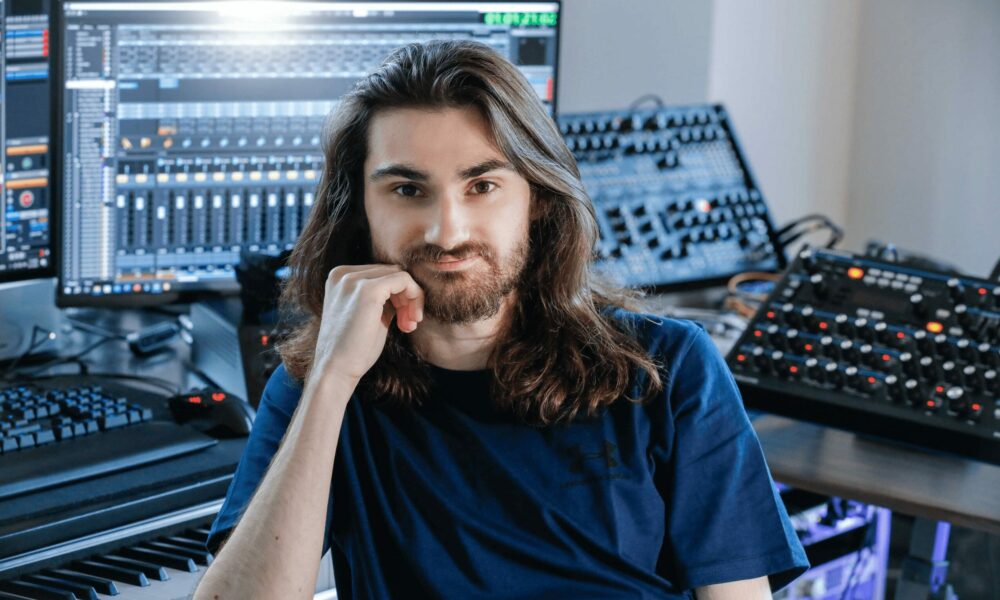

Today we’d like to introduce you to Alex Bertola
Hi Alex, thanks for sharing your story with us. To start, maybe you can tell our readers some of your backstory.
I was born in Paris and was lucky enough to grow up in a family that introduced me to art in all its forms from an early age. This enabled me to develop my artistic fiber at a very early age. I had a natural predisposition for music, which has always played a key role in my life. After reading me a story, I remember that my mother would put on CDs of Mozart, Ravel, and other great classical composers to help me fall asleep. That was the start of my musical awakening, which then broadened to include all styles, from jazz and rock to pop and world music. I attended many musical shows with my parents, discovering instruments and orchestras. I was also fascinated by the piano that throned in the middle of our living room, and whenever I could, I’d put my fingers on it. I started learning piano with a private teacher at the age of 5 when my hands were big enough to play chords on the keyboard. At that age, I played a lot by ear, and I think that’s what enabled me to develop great creativity, daring to explore all the possibilities. I was trained in classical and jazz; then, when I was about 12, I took up the electric guitar with a teacher who trained me in rock, hard rock, and metal. I learned to play pieces by the great guitarists, and we ended our lessons by improvising together. This accentuated my taste for composition, first on guitar and then by integrating different instruments. My first audience was my family before I composed the opening music for the High School Diploma ceremony in 2017. I was very moved to hear my music in front of my classmates, their parents, and all the teachers I’d had during my school career.
While music is my chosen means of expression, images are just as important to me, and cinema plays a key role. Of course, I’ve seen the movies currently showing – animated films and then blockbusters – but I’ve also seen the great classics of French and world cinema, becoming a true cinephile. And as a musician, I quickly became interested in film music. My first trigger was “The Incredibles,” but it was with “Hook” that I realized what emotions music could provoke and how a scene could gain in intensity thanks to the soundtrack. For me, music is as essential as the image, which is why I chose to become a film music composer. I did a lot of self-taught work to acquire the necessary composition, orchestration, and mixing skills while continuing my higher education at a business school in Paris. To create my first orchestral compositions, I based myself on scenarios born of my imagination or on people close to me, notably my mother, to tell her story by mixing different emotions.
It was a meeting with a producer when I was just 19 that accelerated my professional project, as my dearest wish was to make a living from my passion by working in music. Having spotted my potential, even though I had no experience, he entrusted me with the music for a documentary broadcast on French national television and international channels.
Alright, so let’s dig a little deeper into the story – has it been an easy path overall and if not, what were the challenges you’ve had to overcome?
My first experience was a real challenge for me because if I failed, there was no point in me embarking on this career. I had two weeks to compose over 30 minutes of music for different documentary sequences. As the result was well received, I went on to work on other documentaries with different directors. In particular, I wrote the music for a retrospective of Bruce Willis’ career, for which I created a soundtrack inspired by the actor’s films and the atmosphere of the four decades of his career. Building on these professional experiences and with the invaluable support of my parents, I decided to branch out more quickly into my artistic life and learn American techniques by attending Berklee College of Music with the aim of working in Hollywood.
Having spent my entire school life in an international bilingual school, I had already acquired an American culture that was omnipresent in our projects and learning methods. But this was the first time I was leaving my family, to whom I’m very close, and crossing the Atlantic. Then Covid came along, and my departure was delayed until the borders opened again.
Can you tell our readers more about what you do and what you think sets you apart from others?
My daily challenge is to convey emotions through my music, enhancing scenes to make them more impactful. The story is the key, and every compositional decision I make has to align with what’s happening on screen. For instance, an intimate emotional scene requires a different orchestration than an action scene. It’s the choice of instruments and the way they’re combined that makes the connection with the scene. I love crafting beautiful melodies because they are often the most memorable part of a great film score. Melodies leave a lasting imprint on a film’s aesthetic and identity. For me, highlighting a melody or a distinctive element is central to creating a unique identity for the film.
While composing can be a solitary exercise, being a composer also requires the ability to work as part of a team. You have to listen carefully to convey the emotions the director wants to communicate and adapt to all circumstances. When I worked for French television, I had the opportunity to collaborate with several directors, each with different visions and working styles. In each case, I adjusted my approach to best meet their needs, while also contributing my own ideas in a truly constructive exchange. It’s those interactions that make the projects so exciting! I’m also very open to all styles, and through all the documentaries I’ve worked on, I’ve had the opportunity to explore a wide range of genres I hadn’t previously used in my compositions, from world music to the typical Hollywood sound, like when I composed the documentary for Bruce Willis. I don’t hesitate to push myself out of my comfort zone by trying new styles and learning to renew my creative approach.
The two intense years on Berklee’s campus have enabled me to make decisive encounters with professionals and exchange ideas with other students. I learned a great deal from these interactions, and I believe in the power of encounters to advance in life and fulfill personal dreams.
In particular, I was able to record my music with orchestras of different sizes. Working in the studio every week gave me new skills, forcing me to respond quickly and efficiently to an inquiry, compose for very different sequences, manage and direct orchestras, and interact with musicians and sound engineers.
I was honored to receive the Georges Delerue Merit Award, the highest recognition in the Film and Media Scoring department at Berklee College of Music. This award acknowledges my work and dedication, and I am incredibly proud of this achievement.
Looking ahead, I am eager to explore a variety of genres in the film industry. I am particularly drawn to working on big productions, where the scale and complexity of the projects offer a thrilling challenge. Additionally, I am keenly interested in animation and games, where the opportunity to blend music with imaginative visuals and interactive storytelling is incredibly exciting.
The crisis has affected us all in different ways. How has it affected you and any important lessons or epiphanies you can share with us?
The international crisis taught me resilience and showed me my ability to bounce back from challenging situations. It didn’t mean my project had to be put on hold. I took a year of remote courses, then worked on my own to perfect my knowledge before finally joining the campus in Boston. This experience enabled me to improve my composing and mixing techniques, ensuring my demos sound as close as possible to recordings of a real orchestra. This is essential to convince a director of the relevance of my music.
Contact Info:
- Instagram: https://www.instagram.com/alex.bertola_music/
- Youtube: https://www.youtube.com/@Alex_Bertola
- Other: https://open.spotify.com/intl-fr/artist/4h7Pd0GKEMhmorMHP3lwb7?si=S7jTcfpySuq3P8S5Q7JFvg
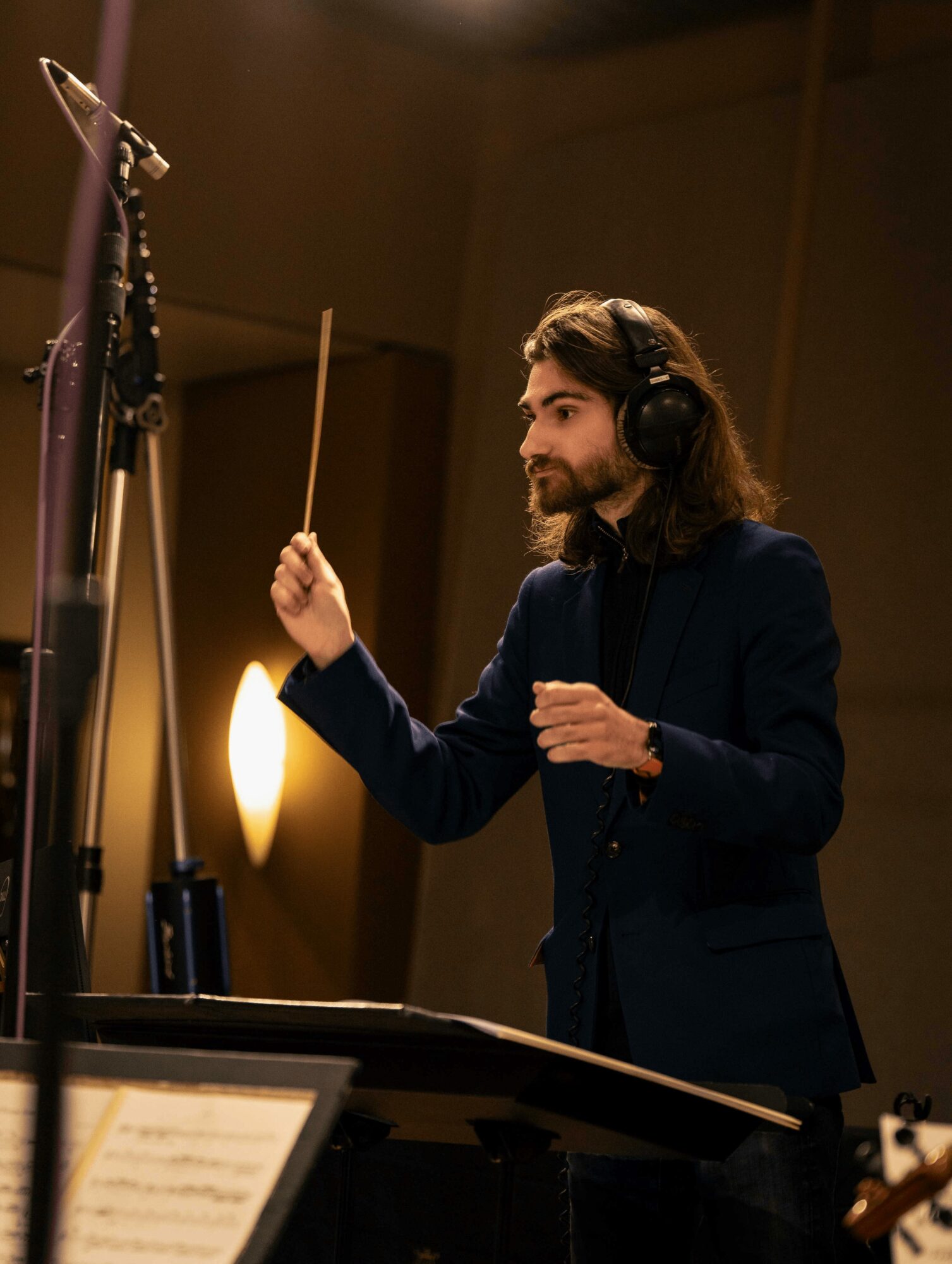
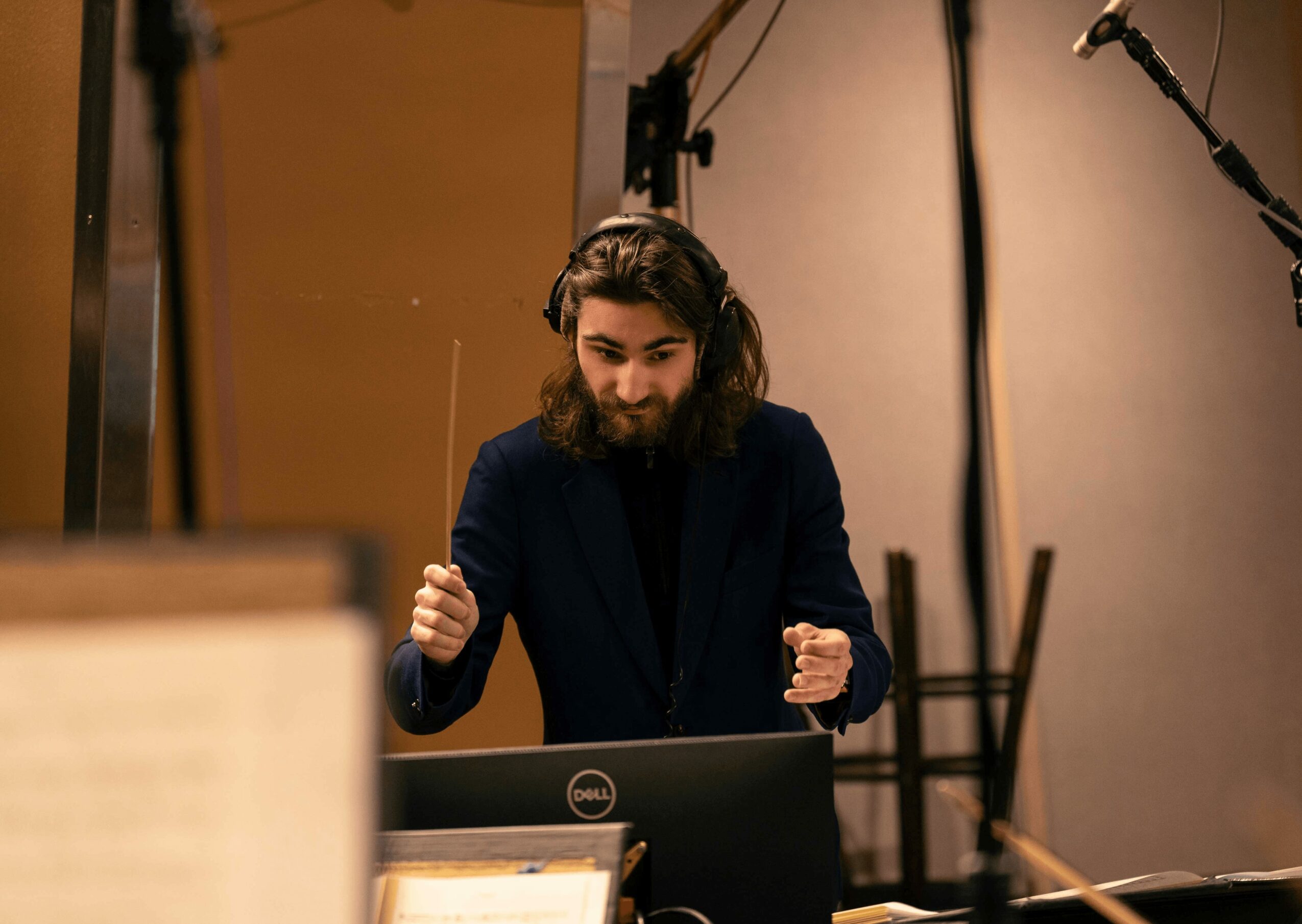
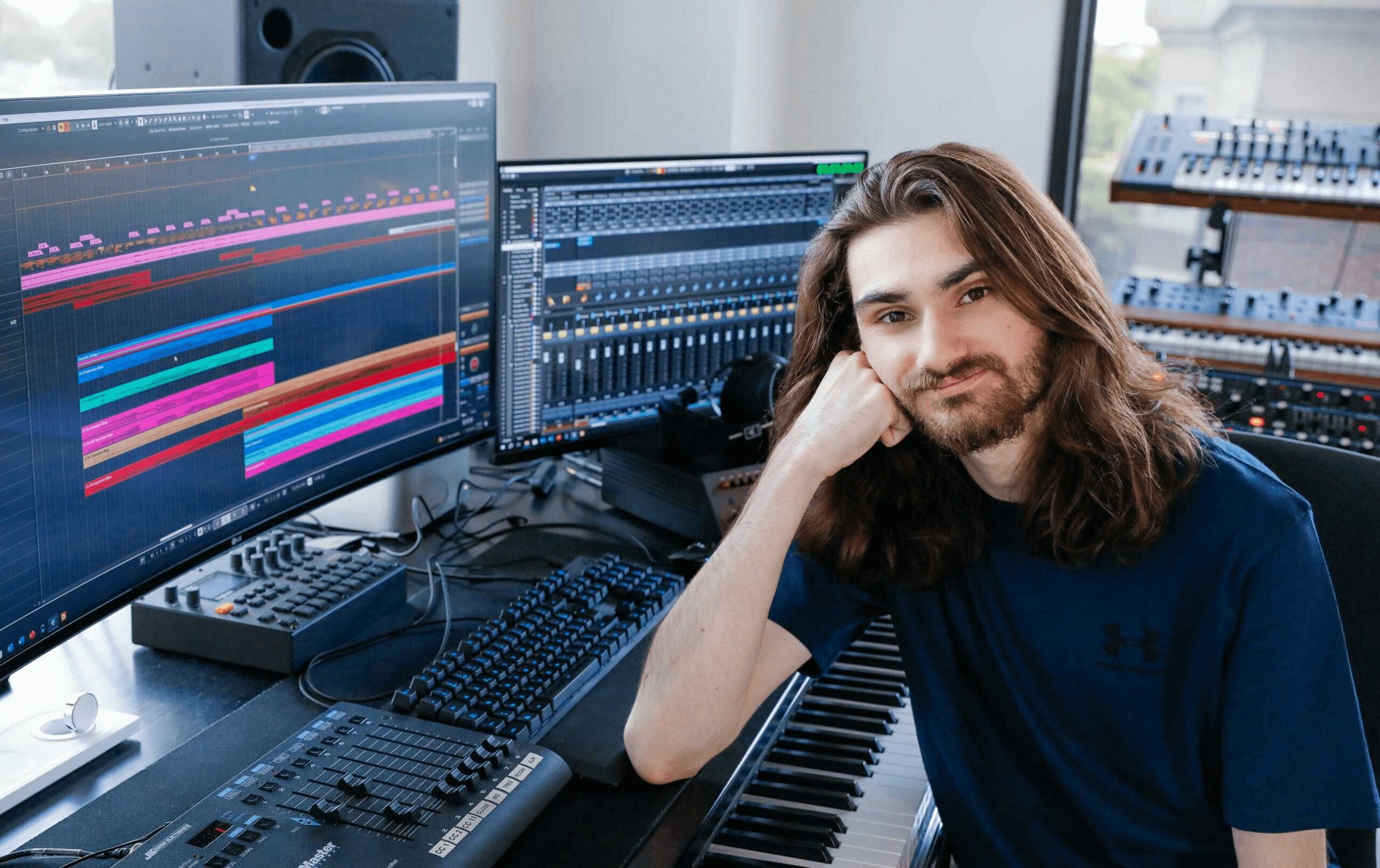
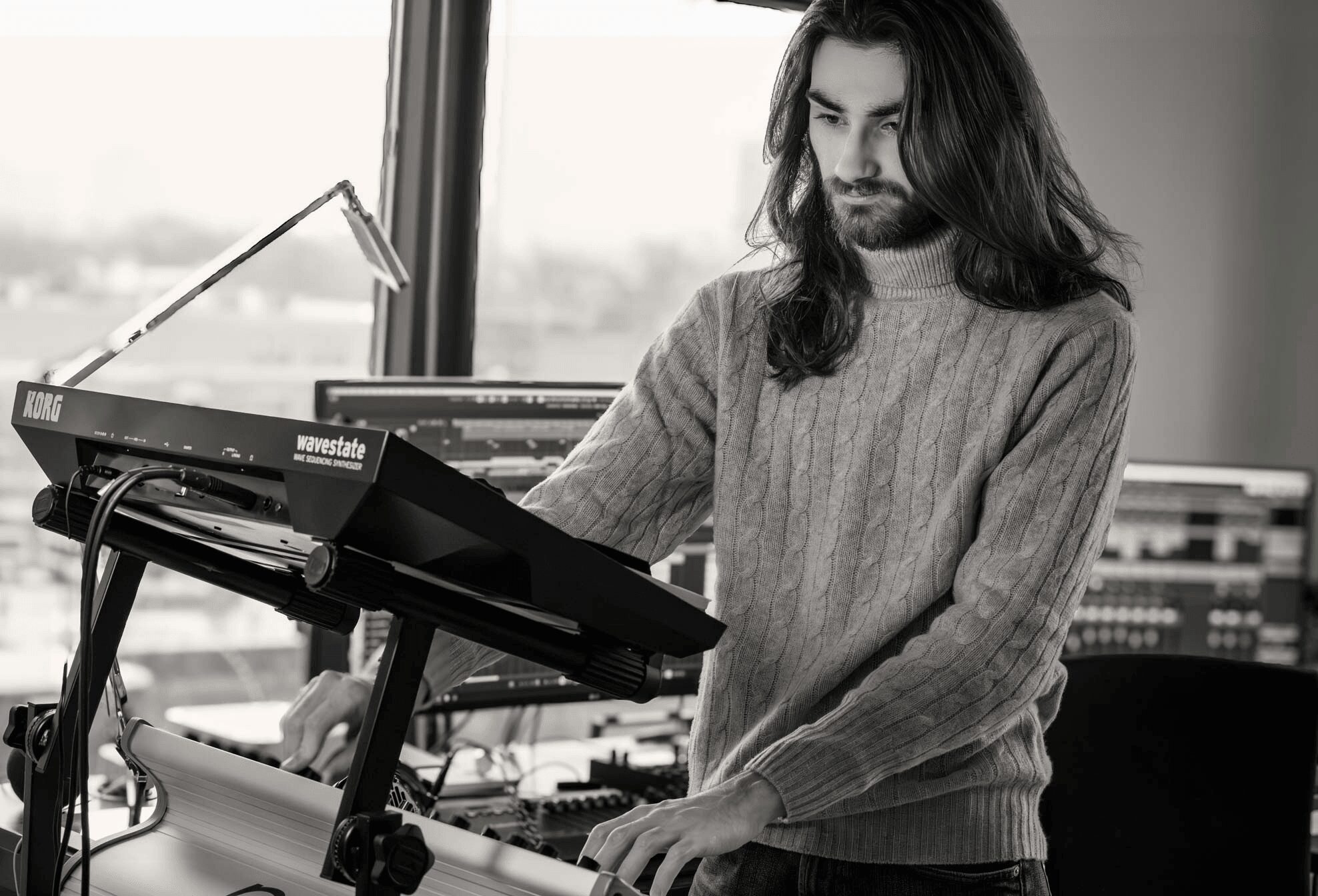
Image Credits
Eric Ling














